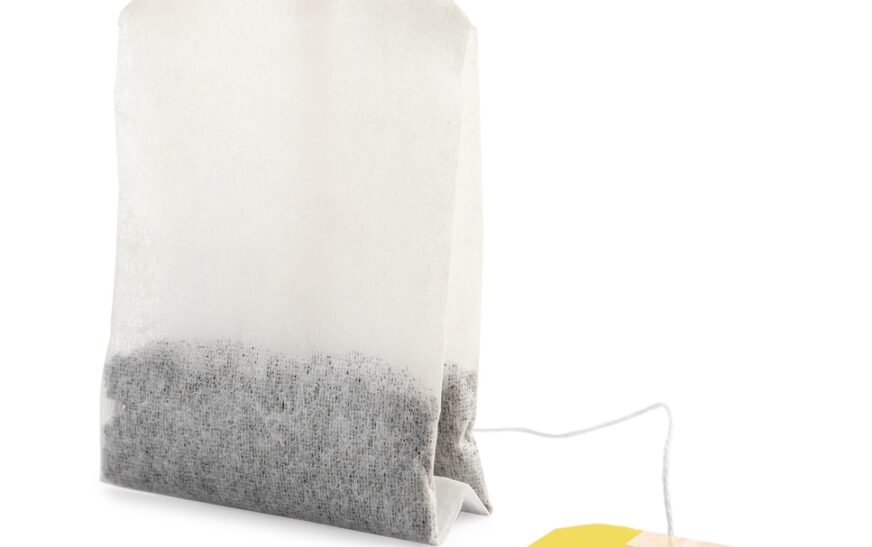Tea is a beloved beverage enjoyed by people all around the world, and its variety and versatility make it a staple in many households. Whether you prefer black, green, white, or herbal tea, one thing remains consistent: the desire to maintain its freshness and flavor for as long as possible. A common question among tea enthusiasts is, “do tea bags spoil or expire?” In this blog, we will explore the answer to this question and provide practical tips on how to store tea bags to ensure maximum flavor retention.
Understanding Tea Bag Shelf Life
Tea bags, like any other consumable product, have a shelf life. However, unlike perishable food items, tea bags do not spoil in the traditional sense. Instead, their quality diminishes over time. The primary factors that affect the shelf life of tea bags include exposure to air, moisture, light, and heat. These elements can cause the tea to lose its flavor, aroma, and potency.
Factors Affecting Tea Quality
- Air Exposure: Oxygen can degrade the quality of tea by causing oxidation. This process can lead to a stale taste and loss of essential oils that contribute to the tea’s flavor and aroma.
- Moisture: Tea leaves are hygroscopic, meaning they absorb moisture from their surroundings. Excessive moisture can lead to mold growth and a musty smell, rendering the tea bags unusable.
- Light: Direct sunlight can break down the chemical compounds in tea, leading to a loss of flavor and color. Ultraviolet (UV) rays can be particularly damaging.
- Heat: High temperatures can accelerate the degradation process, causing the tea to lose its freshness and potency more quickly.
Ideal Storage Conditions
To keep tea bags fresh and flavorful, it is crucial to store them in optimal conditions. Here are some tips on how to do so:
- Use Airtight Containers
Storing tea bags in airtight containers is one of the most effective ways to preserve their freshness. Airtight containers prevent exposure to air, moisture, and light. Consider using opaque containers made of materials like tin, ceramic, or dark glass to further protect the tea from light exposure.
- Keep Tea Bags in a Cool, Dry Place
Temperature and humidity play significant roles in maintaining the quality of tea bags. Store your tea in a cool, dry place away from direct sunlight, such as a pantry or cupboard. Avoid placing tea bags near heat sources like stoves, ovens, or heating vents.
- Avoid Refrigeration
While it may seem logical to store tea bags in the refrigerator to keep them fresh, this is not recommended. The refrigerator’s humidity can introduce moisture to the tea, and frequent opening and closing of the fridge door can cause temperature fluctuations. Instead, stick to a cool, dry storage area.
- Use Desiccants
Desiccants are substances that absorb moisture from their surroundings. Including a small packet of food-safe desiccant in your tea storage container can help keep the tea dry and prevent moisture-related issues. Silica gel packets commonly found in packaged goods can serve this purpose.
- Store Tea Bags Away from Strong Odors
Tea can absorb odors from its surroundings, which can negatively impact its flavor. Keep tea bags away from strong-smelling items like spices, coffee, or cleaning products. Using airtight containers will also help mitigate this issue.
Read Also: How to Make Homemade Hibiscus Tea with Dried Flowers
Tips for Specific Types of Tea
Different types of tea have varying storage requirements due to their unique properties. Here are some additional tips for storing specific types of tea:
Black Tea
Black tea is more robust and has a longer shelf life compared to other types of tea. However, it still requires proper storage to maintain its flavor. Follow the general storage guidelines mentioned above to keep black tea fresh for up to two years.
Green Tea
Green tea is more delicate than black tea and is more susceptible to oxidation. For best results, store green tea in a cool, dark place and use it within six months to a year. Airtight containers are especially important for preserving the freshness of green tea.
White Tea
White tea is the most delicate of all teas and has a shorter shelf life. To enjoy its subtle flavors, consume white tea within six months of purchase. Store it in a cool, dry place, away from light and air.
Herbal Tea
Herbal teas, also known as tisanes, are made from dried fruits, flowers, and herbs. The shelf life of herbal tea can vary depending on the ingredients. Generally, they should be consumed within a year. Store herbal tea in airtight containers to prevent exposure to moisture and air.
Recognizing Stale or Spoiled Tea
While tea bags do not spoil like perishable foods, they can become stale and lose their flavor over time. Here are some signs that your tea bags may no longer be fresh:
– Dull Aroma: Fresh tea should have a strong, pleasant aroma. If your tea bags have little to no smell, they may have lost their potency.
– Off Taste: Brew a cup of tea and taste it. If the flavor is weak, flat, or has an off taste, the tea may have degraded.
– Visible Mold or Discoloration: If you notice any mold, discoloration, or unusual spots on the tea bags, it is best to discard them.
Extending the Life of Tea Bags
To maximize the shelf life of your tea bags, consider the following additional tips:
- Buy in Small Quantities
Purchasing tea in small quantities ensures that you use it up while it is still fresh. This is particularly important for delicate teas like green and white tea.
- Label and Date Your Tea
When you buy new tea, label the container with the purchase date. This helps you keep track of how long you have had the tea and prioritize using older stock first.
- Rotate Your Stock
If you have a large collection of tea, practice the first-in, first-out (FIFO) method. This means using the oldest tea first to prevent it from sitting too long and losing its freshness.
- Share with Friends and Family
If you have more tea than you can consume within a reasonable time frame, consider sharing it with friends and family. This way, everyone can enjoy fresh tea, and you reduce the risk of it going stale.
Maximizing Your Tea Experience
In addition to proper storage, consider the quality of the tea you purchase. Opt for reputable brands known for their freshness and quality. Experiment with different types of tea and brewing methods to find your perfect cup. By investing time in understanding tea storage, you can elevate your tea-drinking experience and savor each sip to its fullest potential.
Conclusion
In conclusion, while tea bags do not spoil or expire like perishable foods, they can lose their flavor and potency over time. By understanding the factors that affect tea quality and implementing proper storage practices, you can keep your tea bags fresh and flavorful for as long as possible. Remember to store tea in airtight containers, keep it in a cool, dry place, and avoid exposure to light, moisture, and strong odors. By following these tips, you can continue to enjoy the delightful taste and aroma of your favorite teas, cup after cup.
Feel free to submit more guest posts through Links Building Servcies - Best Prices. Buy Author Account / 1$ Guest Post Here





















